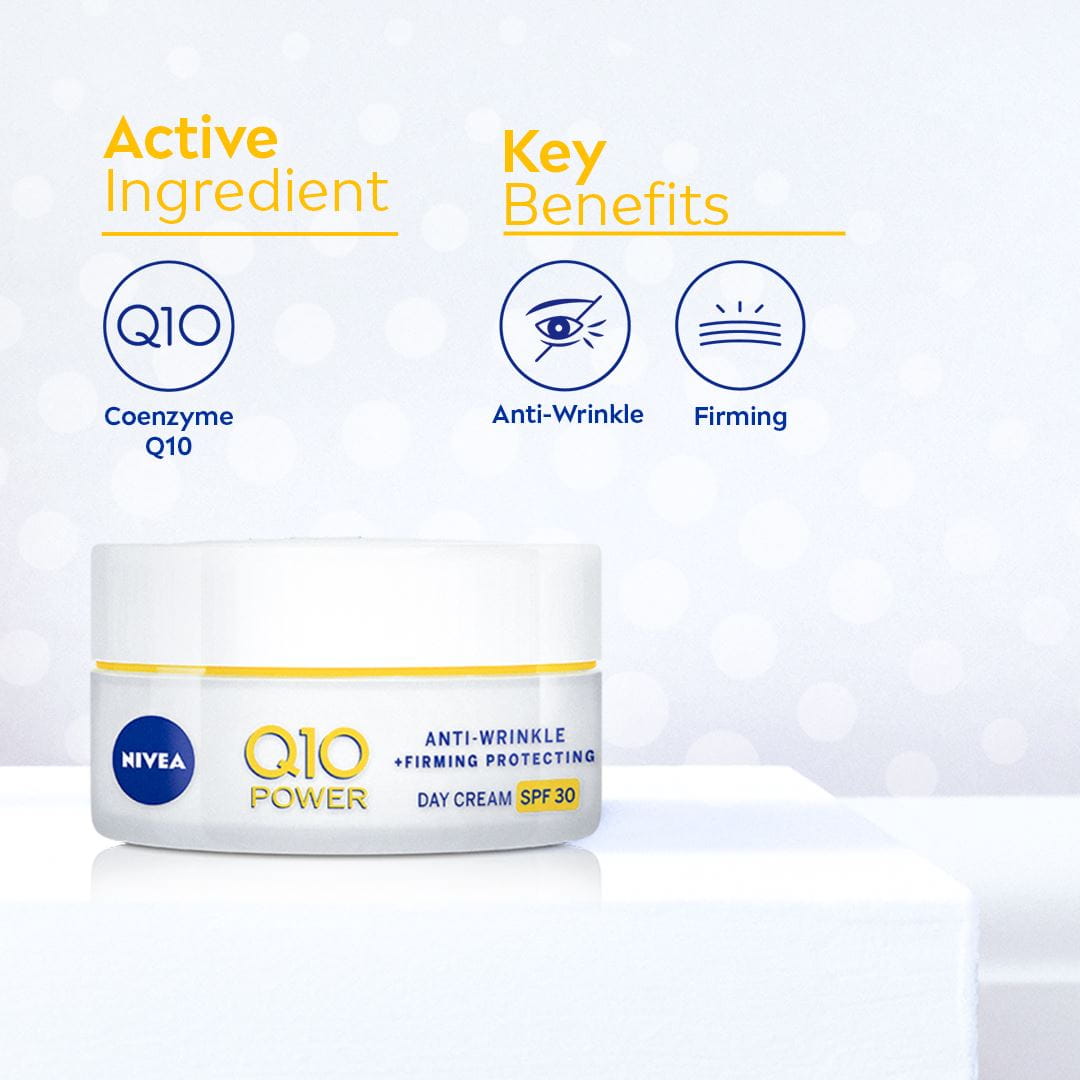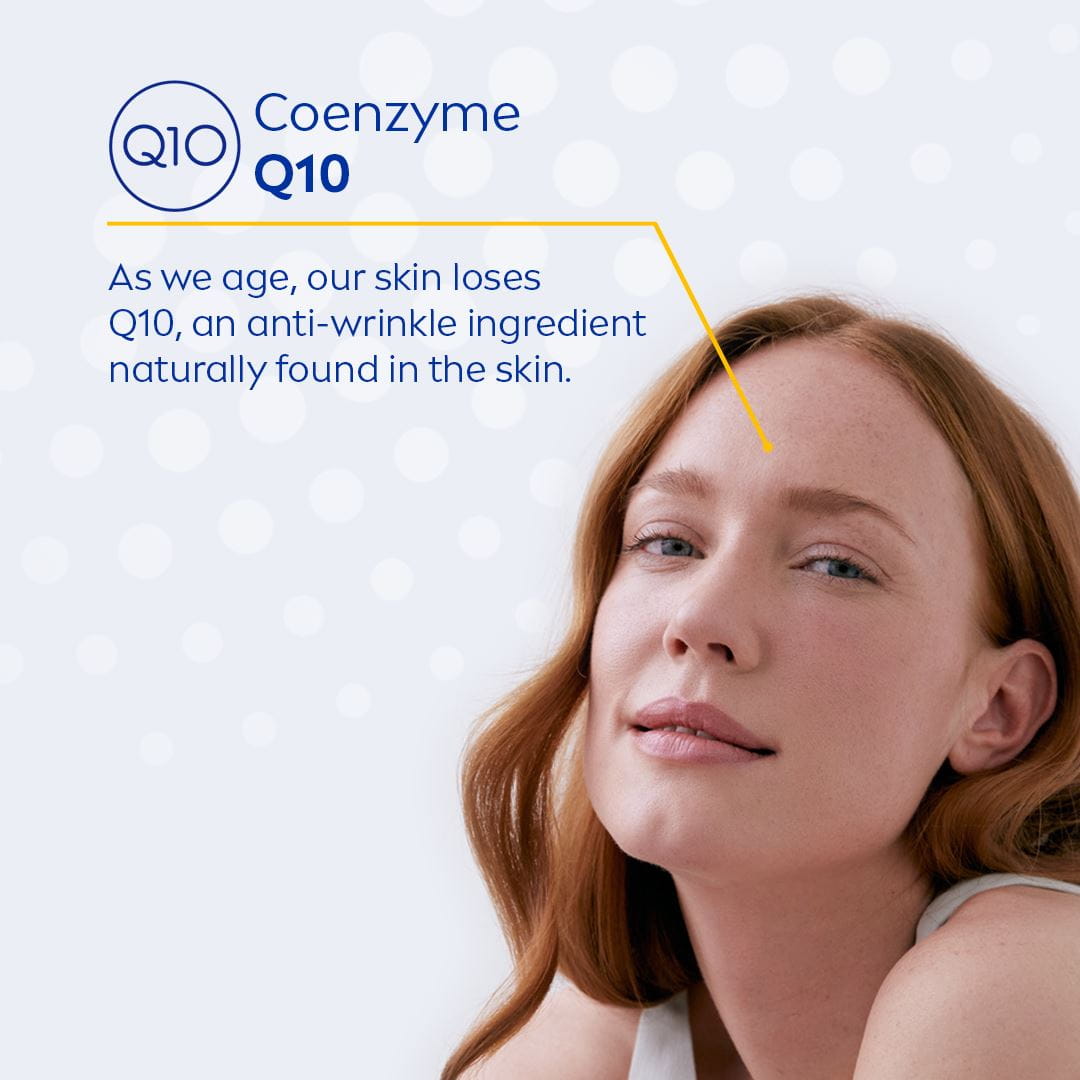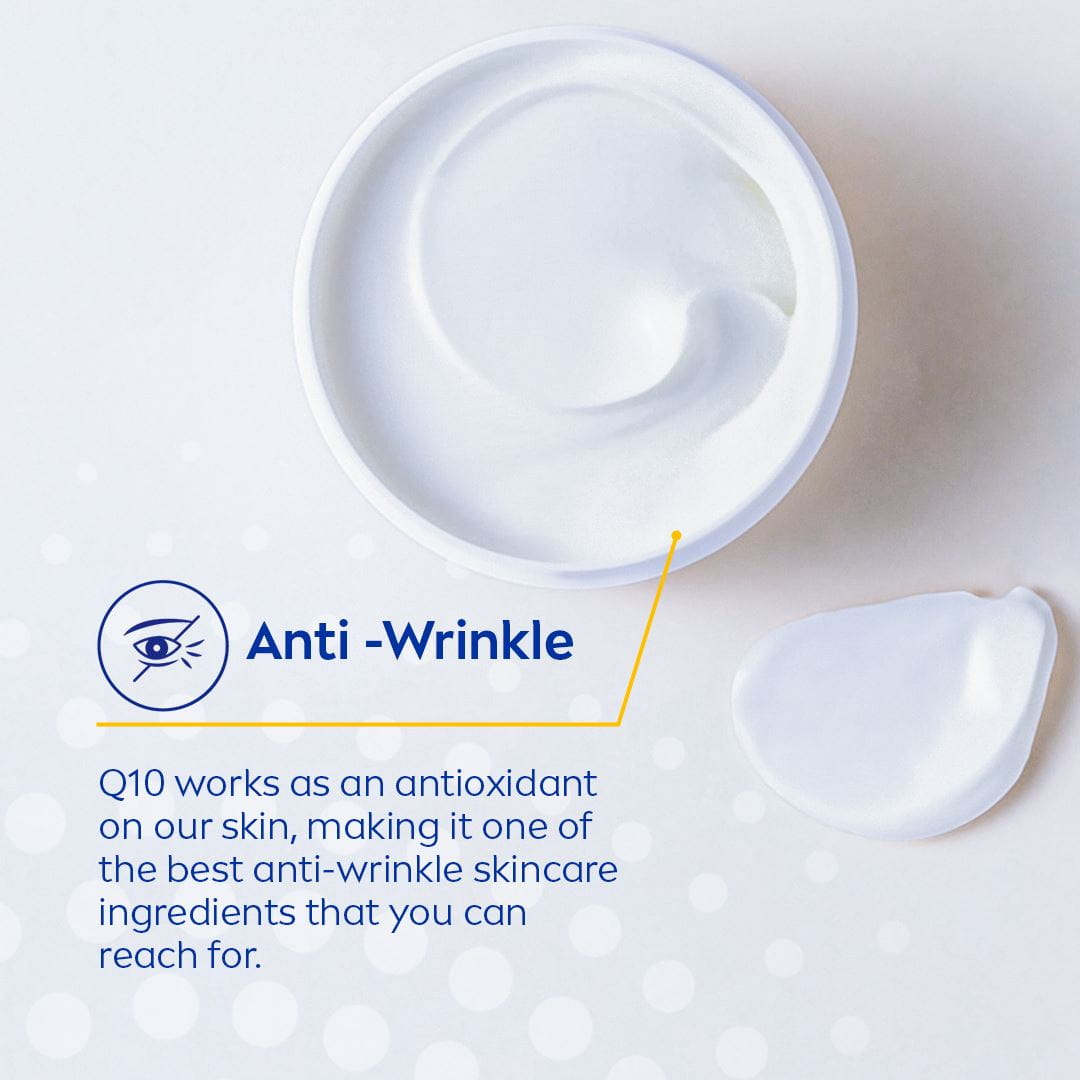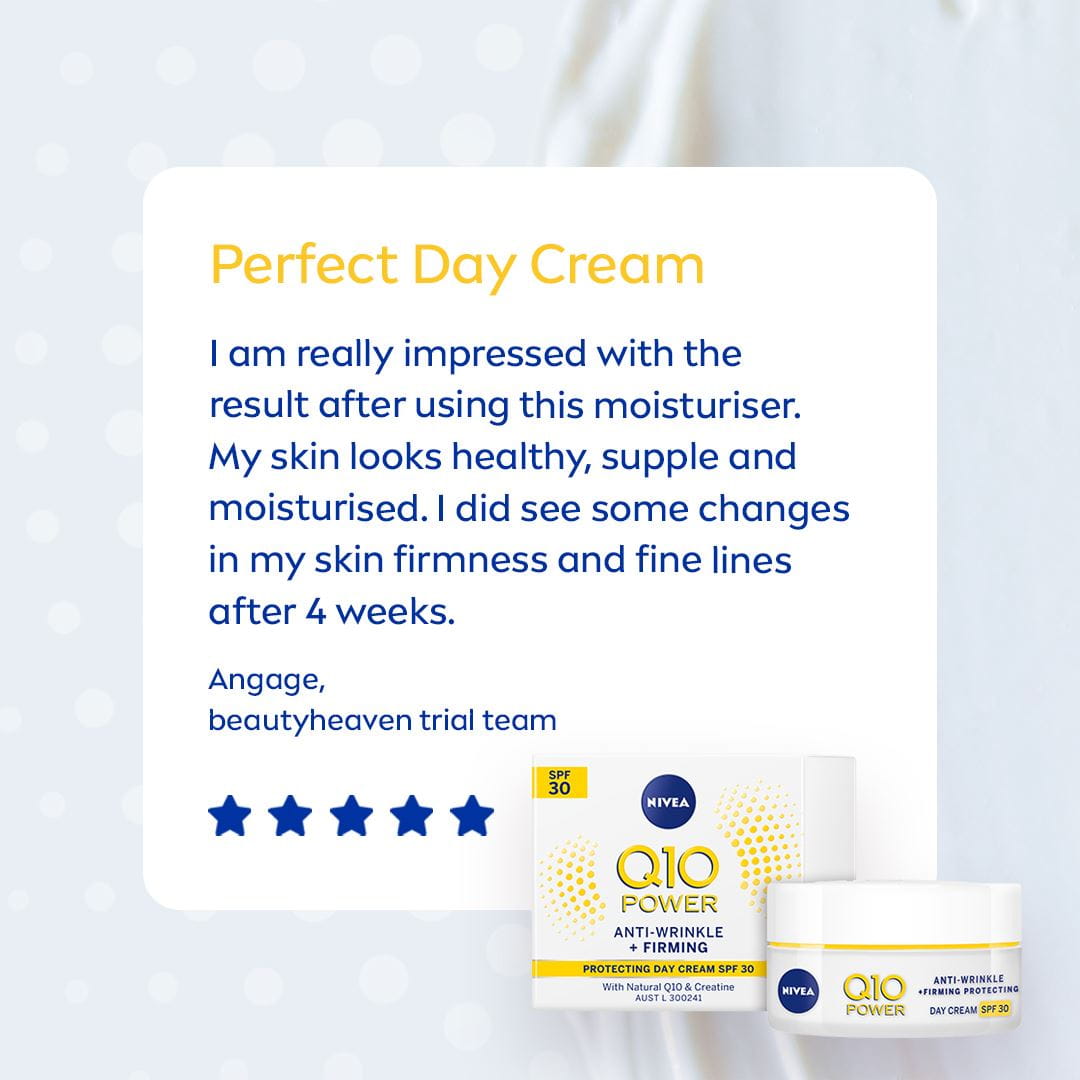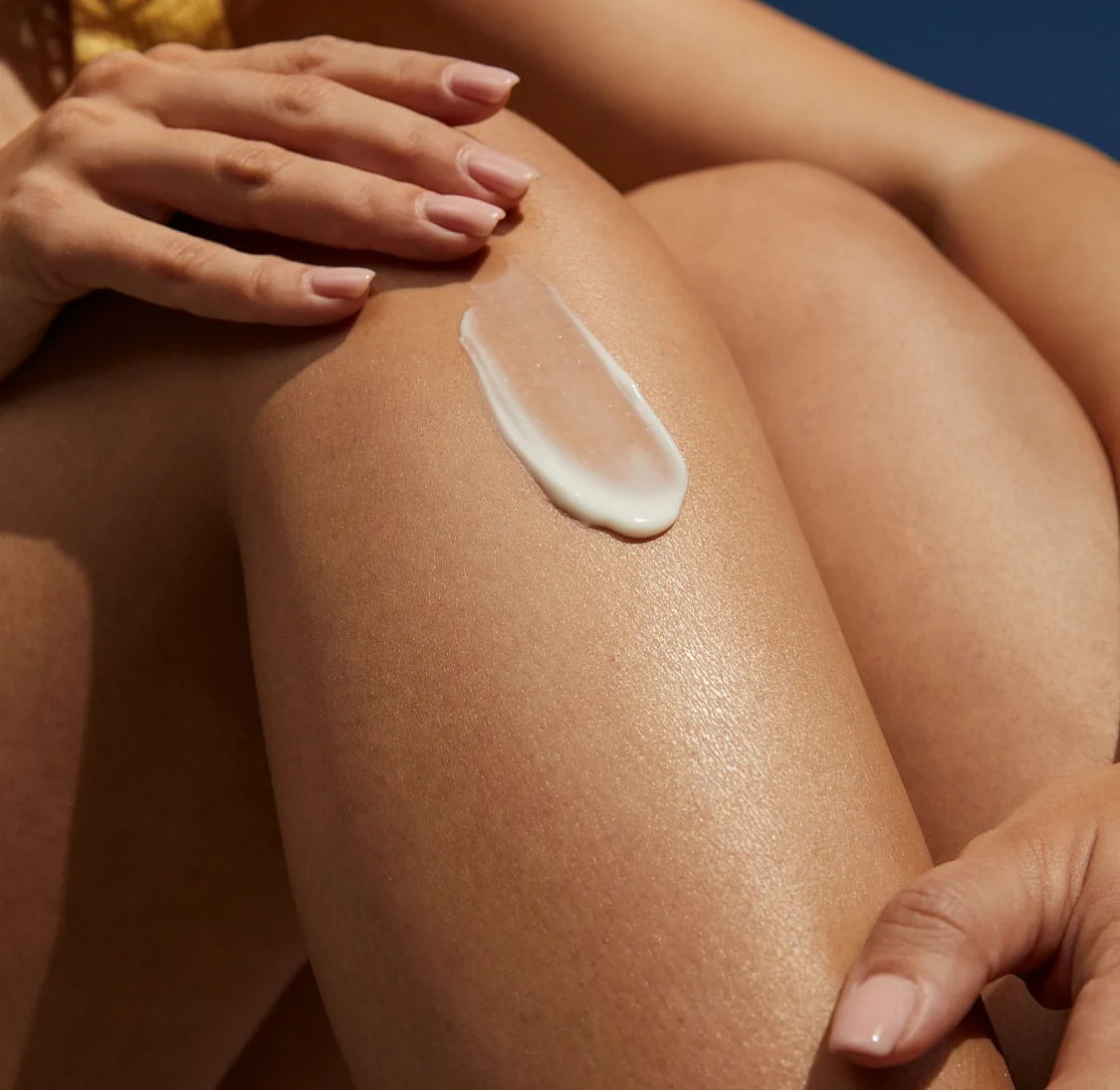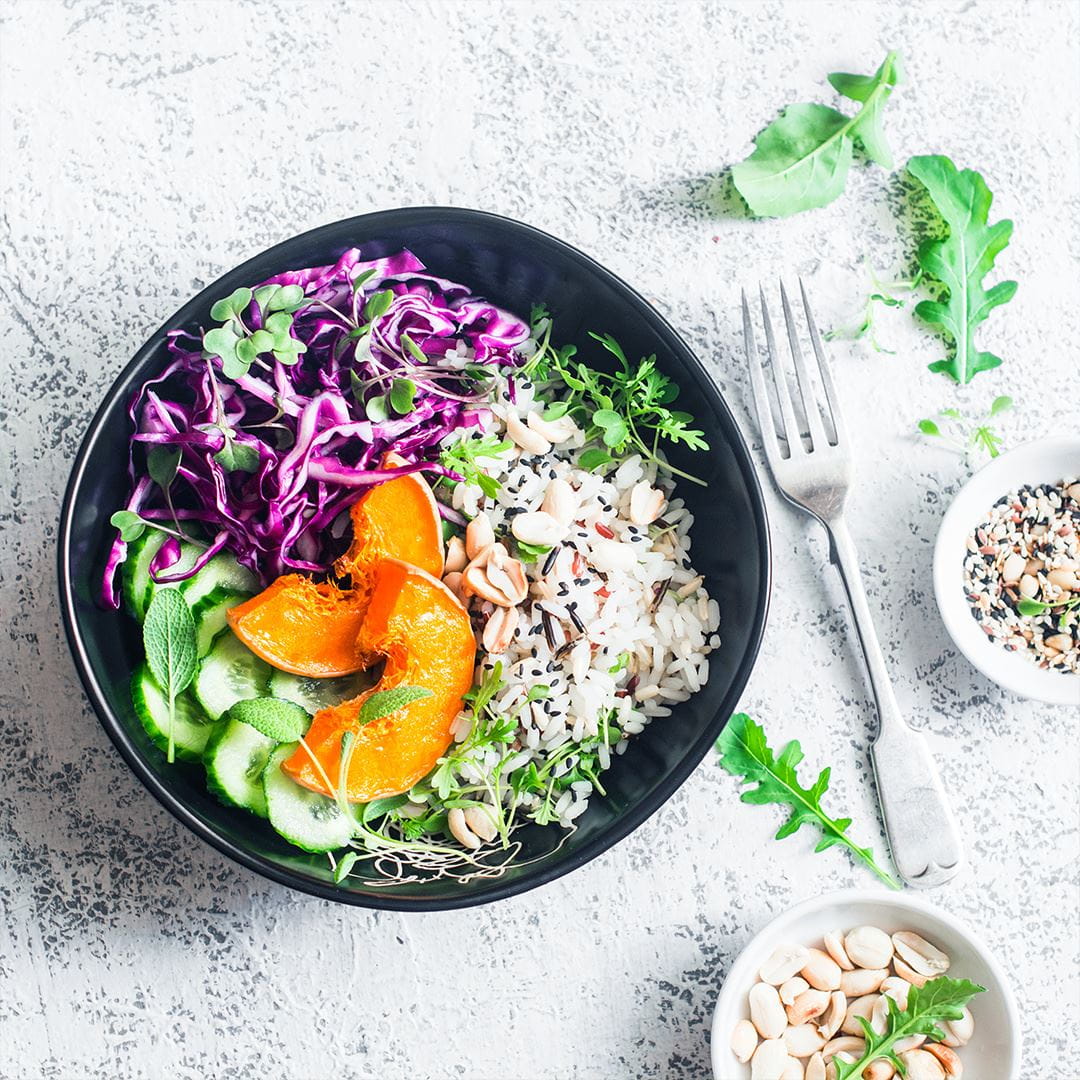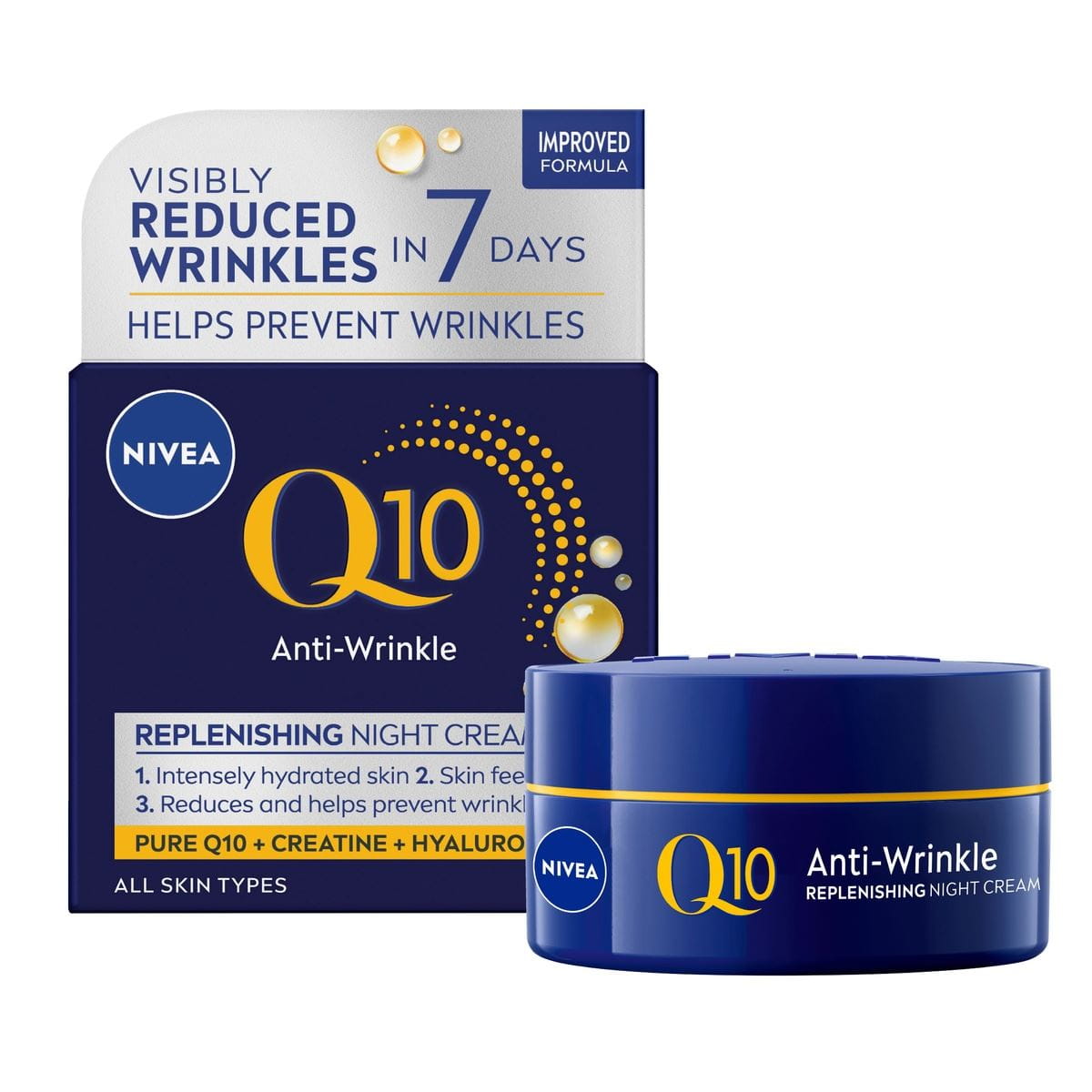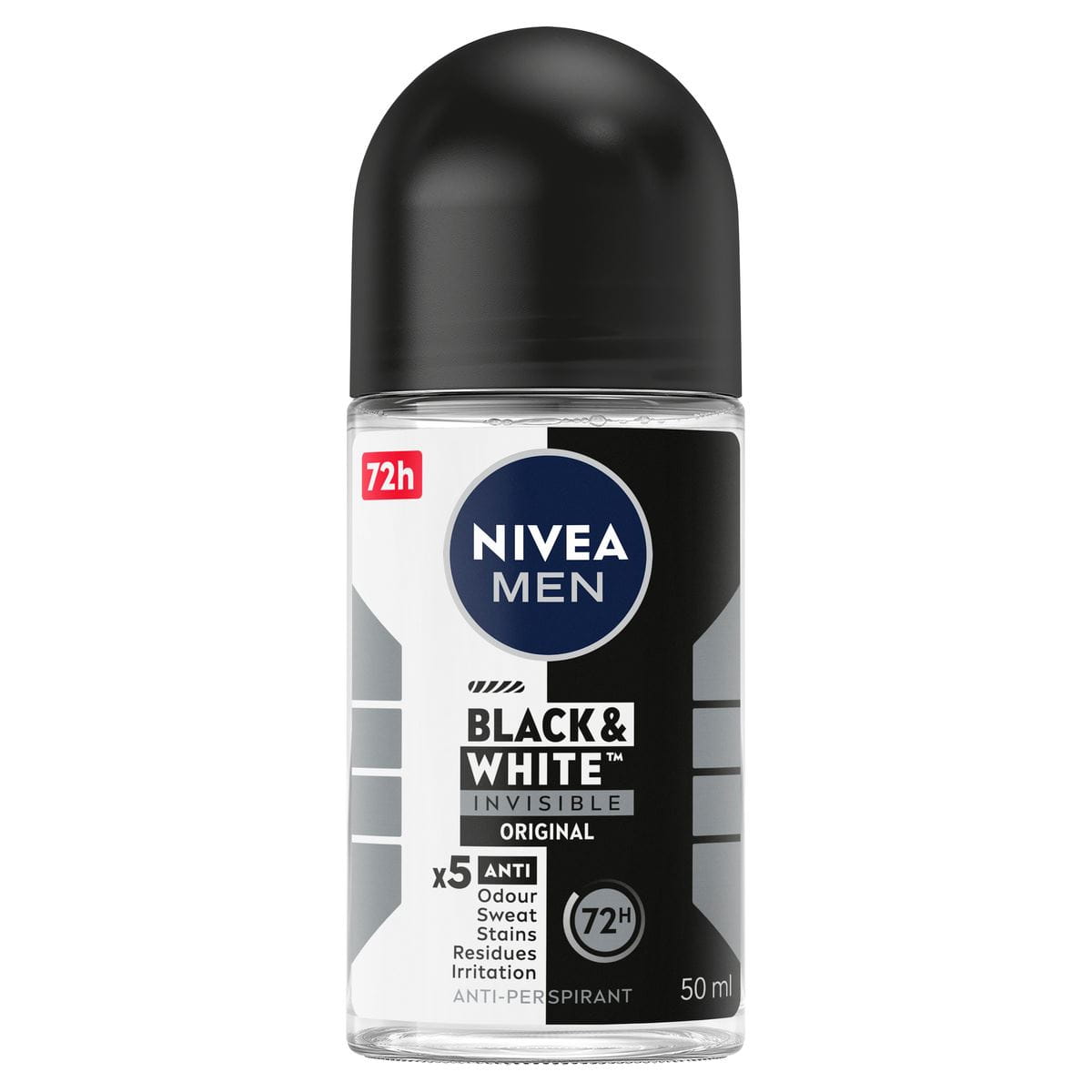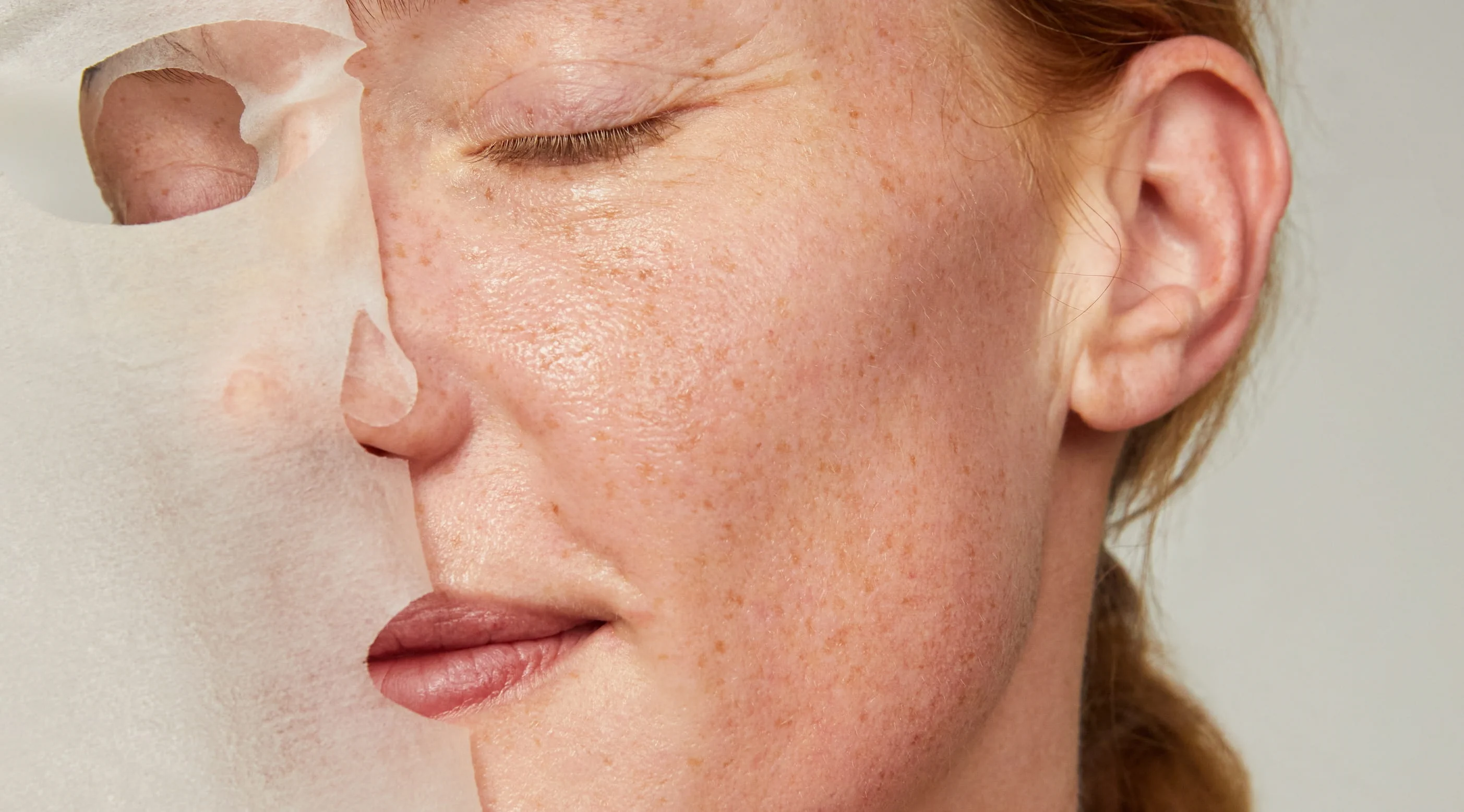
Coenzyme Q10 for Anti-ageing
WHAT CAUSES A DEFICIENCY OF THE SKIN'S OWN Q10?
NUTRITION FOR THE SKIN
Using Q10 products to fight wrinkles
What are the Benefits of Coenzyme Q10
OUR Q10 POWER ANTI-AGE PRODUCTS VISIBLY REDUCES WRINKLES IN 4 WEEKS
NIVEA Q10 PRODUCTS FOR YOUR FACE
OUR CONSUMERS HAVE NOTICED VISIBLE RESULTS
NIVEA Q10 PRODUCTS FOR YOUR BODY
NIVEA Q10 PRODUCTS FOR YOUR HANDS
TOP TIPS TO MAINTAINING HEALTHY SKIN
Our skin ages more quickly or slowly depending on how healthily we live. Give your daily skincare routine an extra boost by getting active yourself. With the right diet, plenty of exercise and a good night’s sleep, you can help your skin look younger for longer.
